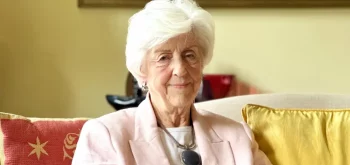A man wrongly accused of rape has spoken out about ‘knee jerk’ plans under the policing bill enabling rape victims to have a legal right to refuse to hand over phones to police. The Daily Telegraph recently reported that Priti Patel, the Home Secretary, and Dominic Raab, the Justice Secretary, put forward amendments to the proposed legislation in an attempt to stop so called ‘digital strip searches’ blamed for plummeting conviction rates.
The amendments would make it illegal for police to place a victim under ‘undue pressure’ to agree to their phone being searched, that a victim must be told what information is being sought and what line of ‘reasonable’ inquiry officers are pursuing. ‘It follows claims that rape victims have been forced into “digital strip searches”, where they have been told refusal to hand over their phones to police will end inquiries,’ the Telegraph reported.
Liam Allan had his life turned upside down after he was charged with 12 counts of rape and sexual assault. His trial collapsed in 2017 after police were ordered to hand over phone records. ‘It can’t be just as simple as being made to handover or being able refuse everything being given,’ Allan told the Justice Gap last night. ‘Police need to find a way of extracting evidence from any phone within a reasonable time frame and within a reasonable context. There is valuable evidence on complainant’s phones – not just for the defence, but for the prosecution too. To deny access to that simply means an investigation cannot be completed thoroughly.’
In Allan’s case, the police downloaded 40,000 text and WhatsApp messages from the complainant’s phone but refused to pass this evidence on to the defence, despite repeated requests from Allan’s lawyers for the messages to be disclosed before the trial. They were told there was nothing to disclose. The case against Allan collapsed three days into his trial at Croydon Crown Court. As a result of his experience, he set up the Defendant, a support group for defendants.
‘It frustrates me so much because it’s not about giving full access to every bit of a victim’s past – nor is the answer stopping access full stop,’ he said. ‘The reason that victim’s have an issue is because data is being extracted, used or discussed that has no relevance to the case at hand. It’s a knee jerk reaction and it’s not going to help anyone.’
‘Disclosure is still a massive problem and the solution that’s being proposed is disclosure failures can’t happen if we don’t take valuable data to disclose. Its all just ridiculous and this term “digital strip search” is overused and is a way of causing moral panic. It just needs better regulations and training to make all lines of enquiry, including a complainant’s phone, reasonable.’
Liam Allan
Rape charging rates have slumped from 8.3% to 1.6% in five years as the number of victims withdrawing has doubled to 40% which, according to the Telegraph, is ‘largely due to intrusive police investigations into their digital communications, lengthy court delays, and the trauma of reliving their attack in court’.
The amendments come on top of plans to extend the use of pre-recorded video evidence by victims to spare them the trauma of appearing in court and a requirement that police return victims’ phones within 24 hours.
Meanwhile, the Telegraph also reported that rape prosecutions have risen by just 41 in the past year ‘as prosecutors were accused of dropping difficult cases to artificially inflate their conviction rates’. The figure represented a 2.1% increase in the number of suspects charged with rape in the last 12 months, despite the Government setting the CPS a target of returning charging rates to 2016/17 levels by the end of the Parliament. At this rate it would take the CPS more than 20 years to hit the target of about 3,900 people being charged in a year, the End Violence against Women coalition said.







